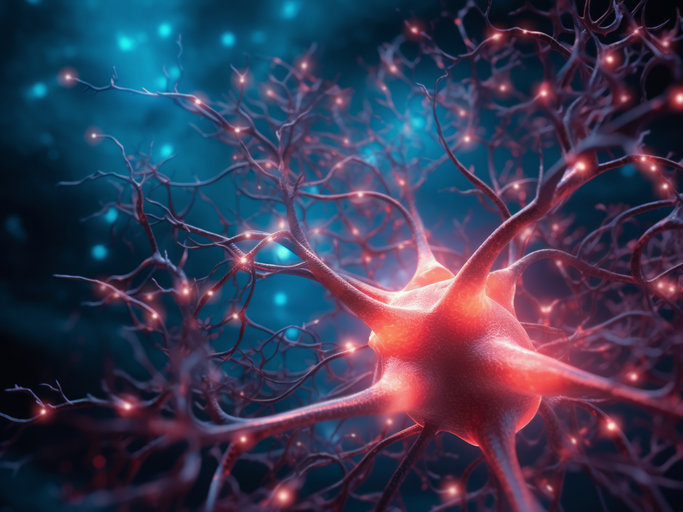Is Modafinil Good for Focus?
Modafinil is a prescription medicine that helps people stay awake. It was first approved to treat conditions like narcolepsy, obstructive sleep apnea, and shift work disorder. Over time, it has also become popular among healthy adults who hope it will improve focus and mental performance. But how strong is the evidence, and is it safe to use for this purpose?
>> Looking to Buy Modafinil Online? Get it here for less than $1 per pill!
What Is Modafinil?
Modafinil is a non-amphetamine stimulant that promotes wakefulness. In the United States, it is approved by the Food and Drug Administration (FDA) to treat narcolepsy, obstructive sleep apnea, and shift work disorder (U.S. Food and Drug Administration, 2015).
Doctors may prescribe it off-label for other conditions, including attention-deficit hyperactivity disorder (ADHD) or fatigue from medical illness. Its use as a “smart drug” to improve focus in healthy people is not an approved indication (Greenblatt & Adams, 2023).
How Does Modafinil Work?
Modafinil acts on several brain systems:
- It weakly blocks dopamine reuptake, increasing dopamine levels.
- It influences norepinephrine, serotonin, orexin, and histamine activity, which are linked to alertness and motivation.
- Compared with stimulants like amphetamine, it has a lower risk of addiction and euphoria (Greenblatt & Adams, 2023).
These properties explain why it helps people stay awake without the strong “rush” of classic stimulants.
Modafinil and Focus
Focus During Sleep Deprivation
Research consistently shows that modafinil helps people perform better when they are very tired. In military and clinical studies, it restored attention, reaction time, and vigilance close to normal levels during total sleep deprivation (Wesensten, 2006).
This makes it useful in high-stakes situations, such as overnight operations or emergency shifts, where fatigue would normally impair performance.
Focus in Healthy, Rested Adults
The effects in people who are not sleep deprived are less clear. A meta-analysis of 19 controlled trials found that modafinil gave only a small boost to overall cognition (effect size g = 0.10), with no reliable advantage across attention, memory, or executive functioning tasks (Kredlow et al., 2019).
Some studies suggest that benefits are greater for people with lower baseline cognitive ability or when tasks are especially demanding (Marchant et al., 2009).
Task-Specific Findings
- Positive effects: Sustained attention, vigilance, and working memory under stress.
- Mixed or limited effects: Creativity, strategic thinking, and problem-solving.
- Meta-cognitive impact: In some cases, users felt more confident in their performance than their results justified, suggesting a risk of overconfidence (Baranski et al., 2004).
Safety, Side Effects, and Legal Considerations
Modafinil is generally well tolerated, but it is not free of risks.
Common side effects (≥5% of users):
- Headache
- Nausea
- Anxiety
- Insomnia (U.S. Food and Drug Administration, 2015)
Serious but rare side effects:
- Severe skin reactions, including Stevens-Johnson syndrome
- Psychiatric symptoms such as mania, psychosis, or aggression
- Heart-related events in people with cardiovascular disease
Because of these risks, the FDA advises stopping the drug at the first sign of rash or serious reaction (U.S. Food and Drug Administration, 2015).
Legal status:
- Modafinil is a Schedule IV controlled substance in the United States.
- It is legal only by prescription for approved uses.
- Using it without medical supervision carries both health and legal risks.
Should You Use Modafinil for Focus?
- Clear benefits: Strong improvement in situations of sleep deprivation or fatigue.
- Limited benefits: Modest, inconsistent gains in well-rested, healthy adults.
- Risks: Side effects, rare but serious reactions, and legal restrictions.
Overall, modafinil is not a general-purpose “focus pill.” Its role is best reserved for medical conditions where excessive sleepiness is a problem. Healthy individuals should weigh the risks carefully and explore safe, evidence-based alternatives such as better sleep habits, physical activity, and structured work routines.
FAQ
Can I take modafinil at night?
No. Modafinil is designed to promote wakefulness and may cause insomnia if taken late in the day. For shift work disorder, the FDA recommends taking it about one hour before starting a night shift (U.S. Food and Drug Administration, 2015).
Does modafinil cure attention-deficit hyperactivity disorder (ADHD)?
No. While some studies suggest possible benefits, the FDA has not approved modafinil for ADHD because evidence is inconsistent and risks remain (Greenblatt & Adams, 2023).
Is modafinil addictive?
Modafinil has a lower addiction risk than amphetamines, but it can still cause dependence in some cases. It is classified as a Schedule IV controlled substance in the United States (U.S. Food and Drug Administration, 2015).
What are safer alternatives for improving focus?
Good sleep, regular exercise, balanced nutrition, and techniques such as mindfulness or structured work breaks have stronger evidence for improving everyday focus without the risks of prescription stimulants.
References
- U.S. Food and Drug Administration. (2015). PROVIGIL® (modafinil) tablets, for oral use, C-IV [Prescribing information]. U.S. Department of Health and Human Services. https://www.accessdata.fda.gov/drugsatfda_docs/label/2015/020717s037s038lbl.pdf
- Greenblatt, K., & Adams, N. (2023, February 6). Modafinil. In StatPearls [Internet]. StatPearls Publishing. https://www.ncbi.nlm.nih.gov/books/NBK531476/
- Kredlow, M. A., Keshishian, A., Oppenheimer, S., & Otto, M. W. (2019). The efficacy of modafinil as a cognitive enhancer: A systematic review and meta-analysis. Journal of Clinical Psychopharmacology, 39(5), 455–461. https://doi.org/10.1097/JCP.0000000000001085
- Baranski, J. V., Pigeau, R., Dinich, P., & Jacobs, I. (2004). Effects of modafinil on cognitive and meta-cognitive performance. Human Psychopharmacology: Clinical and Experimental, 19(5), 323–332. https://doi.org/10.1002/hup.596
- Wesensten, N. J. (2006). Effects of modafinil on cognitive performance and alertness during sleep deprivation. Current Pharmaceutical Design, 12(20), 2457–2471. https://doi.org/10.2174/138161206777698819
- Marchant, N. L., Kamel, F., Echlin, K., Grice, J., Lewis, M., & Rusted, J. M. (2009). Modafinil improves rapid shifts of attention. Psychopharmacology, 202(1–3), 487–495. https://doi.org/10.1007/s00213-008-1395-1








